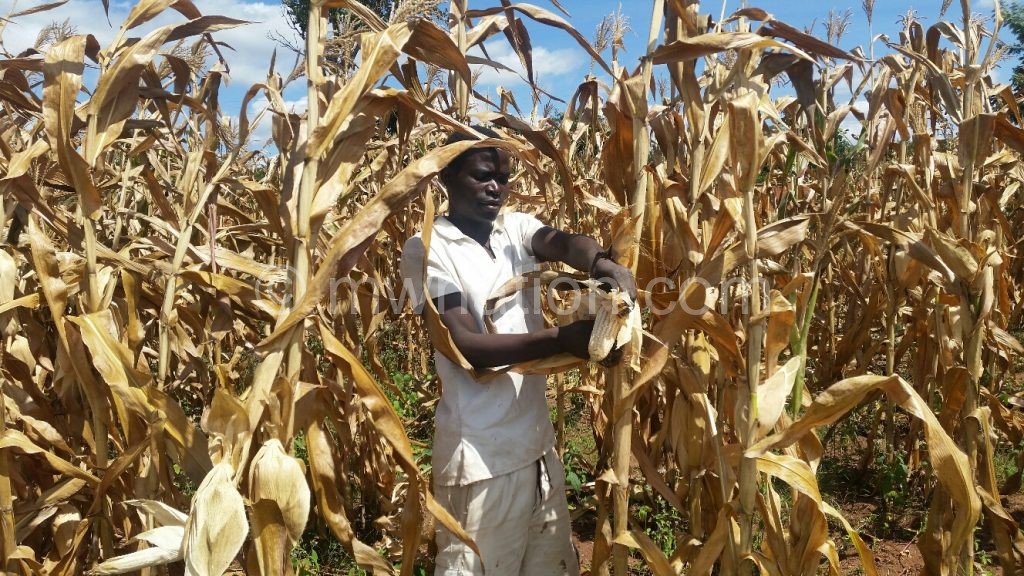Bzyanzi: A different prison
Matthias John, 22, was sentenced to three years imprisonment after being found guilty of breaking into a shop and stealing cartons of soap and a generator at Mchinji Boma.
The man who comes from Chisikwa Village in Traditional Authority (T/A) Kalolo in Lilongwe was worried about prison life based on the stories he had heard about life behind bars.

“I heard that in prison people eat once a day and inmates scramble for food. I also heard that some inmates come out of prison worse than before. This brought fears in me that I would suffer too,” says John.
However, this is contrary to what he is experiencing at Bzyanzi Prison in Dowa District where he is serving his prison sentence. At this prison, John and 89 other inmates eat three times a day just as he used to do back at his home.
Whereas other prisons face food shortage in the country, providing one meal a day to the inmates, Bzyanzi Prison has no food challenges.
This is attributed to the prison’s emphasis on agriculture which sees it harvesting 200 bags of maize per hectare and four tonnes of soy beans per hectare. The prison grows and harvests twice a year because the inmates also practise irrigation farming.
To demonstrate how food secure it is, the prison has over the years been donating maize to Kachere Prison in Lilongwe.
It also has two fish ponds from which the prisoners get fish.
Every morning the inmates get soy bean porridge. At lunch and supper, they eat nsima with fish and vegetables. Alternatively, they eat nsima with well-cooked beans and vegetables.
“Many people think the prison is the place for punishment. But here, we believe that the prison is the place for the offenders to change their behaviours for the better.
“For this reason, we ensure that the inmates get enough food so that they can be happy people while we teach them different skills such as carpentry and farming. These skills will help them to easily generate money legally when they go out of prison after their sentences,” says the prison’s officer in-charge, Edward Chimphepo-Phiri.
He says the agriculture initiative has been made possible and easy because of assistance the prison gets mainly from Seed-Co Malawi Limited. The company assists the prison with seeds, fertilisers and technical expertise in agriculture.
Amazingly, the prison has no fence, but since it opened in the early 2000s, there has been no case of inmate escape.
Group Village Head (GVH) Chimbwala says usually people escape from prison because of bad conditions such as lack of food.
“But at this prison no inmate can think of escaping because it does not punish inmates. Instead, it trains them to be productive citizens when they are released,” he said.
According to Seed-Co Malawi Limited sales and marketing manager Hannock Madeira, his company came in after being impressed with the prison’s efforts to achieve food security.
He says: “We realised that this is a unique prison. This is a prison which strives to be incomparable by improving the welfare of inmates through agriculture. At this prison, the inmates work hard in the field.
“As a company which dreams of a country that is food secure, we thought it wise to support Bzyanzi prison in farming. We provide seeds and fertilisers to the prison for farming which they do twice a year. We give them Kanyani and Mbidzi hybrid [maize] seeds because they mature early; hence, they suit the conditions of Dowa District.”
He adds the country can easily achieve food security if all Malawians emulated what Bzyanzi prison is doing.
The success story from Bzyanzi Prison has motivated Seed-Co Malawi Limited to extend its helping hand to other prisons in the country.
“We want other prisons to do the same. Therefore, we have also started giving out seeds and fertilisers to other prisons across the country so that they can be independent on food,” says Madeira.
Chimphepo-Phiri hopes that in a few years the prison will be able to feed other prisons in the central region.
Interestingly, the surrounding villages are learning from the prison’s farming. Villagers come to learn how to cultivate vegetables and rear fish.
One of the locals from Chimbwala Village, Mirriam Satha, says her farming has improved because of the expertise she learnt from Bzyanzi Prison.
Assistant extension development coordinator in Chivala extension planning Area (EPA), Patrick Taulo, says the prison has simplified his job because he uses it for demonstration to farmers who want to do vegetable, maize and fish farming using modern ways.
“Currently, a total of 26 856 farmers learn farming skills from this prison. They learn different skills such as making of organic manure. Furthermore, I use fish ponds at this prison to teach surrounding farmers on how they can do fish farming successfully,” he says.
Taulo says farming has improved in the area because of the skills people learn from Bzyanzi prison.
John says when he gets out of prison in nine months, he will be a changed person because farming skills which he has acquired in prison will help him to earn a living legally.
“Previously, I believed in stealing to get money. But here at prison I have learnt that a person can do farming and earn money,” he says.






This is a very interesting story. I hope other prisons will borrow a leaf from this amazing prison.